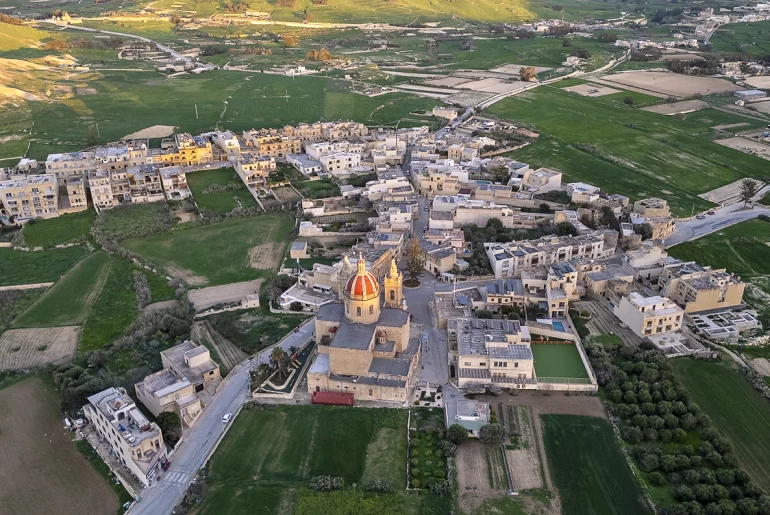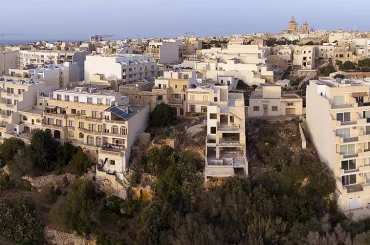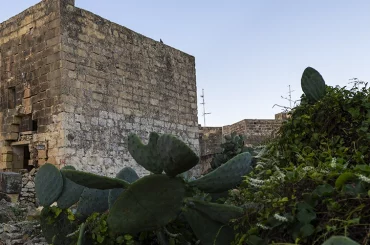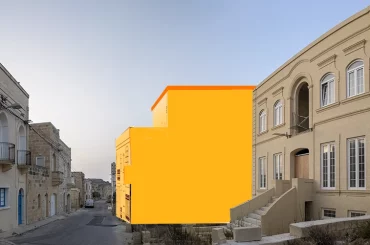In a document that appears to have been drafted in China and presented at a meeting of Malta’s smallest village last week, which had a population of 518 in the 2021 census, the village is referred to as “the City of Għasri.” The document is a Memorandum of Understanding designed to establish “sister cities relationship” between Jiangning, in Nanjing, and Għasri. Nanjing is the capital of China’s richest province; its sprawling Jiangning district has a population of almost 2 million.
I have followed the proposal for the twinning put forward by Għasri’s Labour Party mayor, Daniel Attard, initially in the meeting of 31 October 2024. Attard had returned from a weeks-long trip in China, where he goes to solicit customers for Malta’s residency schemes, most eminent of which are the Maltese citizenship by investment (so-called golden passports) and permanent residence for wealthy individuals (golden visas). Many thousands of wealthy Chinese have acquired golden visas for Malta in the past several years.
Attard spoke glowingly of China, even mentioning the dazzling lights on high-rise buildings on riverfronts or seafronts that are lit after dark. He described the country as futuristic – in Maltese, he used the idiomatic analogy that compares somewhere futuristic to outer space (in Maltese it goes like this, which is what the mayor said: “Qisek qiegħed fl-ispazju.”)

When a councilor remarked sceptically on the mismatch in size between Għasri and a Chinese city, and wondered why a city in China is interested in Għasri, Attard said that “they [the Chinese] want to work with everyone.”
There seemed to be scepticism in the council meeting towards Attard’s proposal for twinning.
The meeting then descended into recriminations when a PN councilor, Salvu Felice, raised questions about a planning application for a block of flats, in an Urban Conservation Area and spilling significantly into Outside Development Zone, on land that belongs to the mayor.
The planning application was the reason why I was following the meeting. I had written an article revealing that the mayor Daniel Attard was the owner of the plot of land in question, although the applicant was another individual. (Attard did not reply to my questions at the time on what agreement he has with the applicant.)
The Planning Directorate has since recommended refusal of the application – more on this later.

Can Għasri live up to the rhetoric?
The Memorandum of Understanding between the “City of Nanjing Jiangning district” and the “City of Għasri”, presented to the council last week by the mayor, makes overarching, grand statements about developing “various forms of culture, education, tourism, economy and trade to promote common prosperity and developments.” In another part, it reemphasizes “focus on cooperation in areas such as economy and trade, protection of historical relics and tourism development.”
If the twinning goes ahead – the Għasri council has now written a report to the ministry of local government – it would be the second instance (after Santa Lucija) of a twinning between a Maltese local council and a district in China.
I have not seen Santa Lucija’s agreement, but when it comes to Għasri', my thinking is that the MOU shows a kind of reach or ambition that would make sense if it was referring to Malta as a whole. But Malta’s smallest village? What trade can be had, for example, between Għasri and Jiangning? The latter is a sprawling urban mass that also has a high-tech development zone, one of China’s most modern, that is around half the size of Malta. Għasri, by contrast, has no industry, and it does not seem to produce anything other than the produce of a scatter of small animal farms, all of which serve the local market.
I looked into the form filled in by the Għasri council for the ministry of local government to see if I could find more details. Once again, I found lofty principles such as “shared vision of strengthening international relations”; a “partnership [that] aims to promote collaboration in culture, education, tourism, economy and trade, facilitating the exchange of expertise and experiences”; and a “leveraging their shared commitment to heritage preservation and sustainable development”.
In the section on “expected results and benefits”, the “expected results include increased tourism, shared expertise in heritage conservation, and collaborative sustainable development projects.” Another sentence asserts that the “collaboration will also boost local industries.”
Yet the only specific thing mentioned is the annual agrarian festival organised by the council, an event held on an evening every September. “By participating in Għasri’s annual traditions event in September,” the sentence goes, “such as celebrating local wine, olive oil, and honey, Jiangning will gain unique cultural insights, promoting mutual appreciation.”
This generic assertion lacks specifics on what knowledge or insights a city in China can acquire from Għasri’s micro agrarian festival. After all, China has a large and well-developed wine production industry, a long history of producing honey, and every year it produces 90,000 tons of olive oil from olive oil plantations that cover a land area more than three times the size of Malta’s land area.
I am not saying there is nothing inspiring about Maltese agrarian traditions. I am saying that it all seems rather vague; and that there is a mismatch between the rhetoric and the specifics, and a mismatch between Jiangning as a relatively modern city and Għasri’s character – in part a village of rural folk and range of residencts, in part a village of retirees and/or people who have second homes.
Parochialism and tension in the local council
One of the things that struck me as I followed the meeting is the parochialism of the council. It felt like a parish meeting of a small community, and made me think that these councils for small villages are a waste of resources. Does Malta, and Gozo more so, need so many councils and layers of governance?
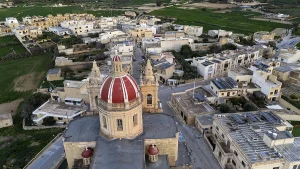
Another thing that struck is the perceptible tension. In part it may be down to personal antipathies; in part the mayor’s change in political allegiance – in 2022, the mayor switched from PN to Labour.
In the meeting of 31 October, the perceptible tension bubbled into recriminations when Salvu Felice, a PN councillor, raised questions over the proposed block of flats on land belonging to the mayor, Daniel Attard. The application is categorised as an Outside Development Application because it significantly juts beyond the development lines – the part beyond the development boundary amounts to around 175 square metres – and Felice asked if, or why not, the council had not discussed it or objected to it given its ODZ status.
Attard countered that Felice’s attempt to 'shame' him would fail, and that the council never objected to any “residential building.” He said that the council only objects to sheep farms in outside development zones mostly.
Then he accused Felice that, in his house, he had used a “loophole” in the law to regularise a development without a permit. He was referring to a shed at the back of Felice's house, built without a permit and partly falling on Outside Development Zone, as well as other changes or additions to the house. These developments were sanctioned last year and, in its minutes, the Planning Commission justified sanctioning by noting that the dwelling was used as a residence, or had existed, since before 1992.
I sent questions to Attard about the part of the proposed development on his land that falls on ODZ, the two pools and decking. Specifically, I asked him if he had a comment to make in view of decisions by the Court of Appeal last year to revoke planning permits for swimming pools developed on ODZ as part of a new development, in the same manner as pitched in the proposal on his land. There was no reply to that question, or any other question I asked him.
Any small change to keep this project afloat?
I rely on donations and grants to sustain myself and keep this website running. Keep me sustained so that I can continue delivering professional, well-illustrated articles on this website that no one else does consistently in Malta. Contribute as little as €5 to sustain this website's authoritative journalism that makes an impact with a key audience, serves as reference, and becomes amplified over time. Donating is safely carried via gateways of international, secure banking systems – click on button below to find out more.

